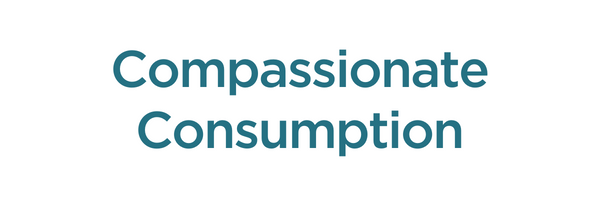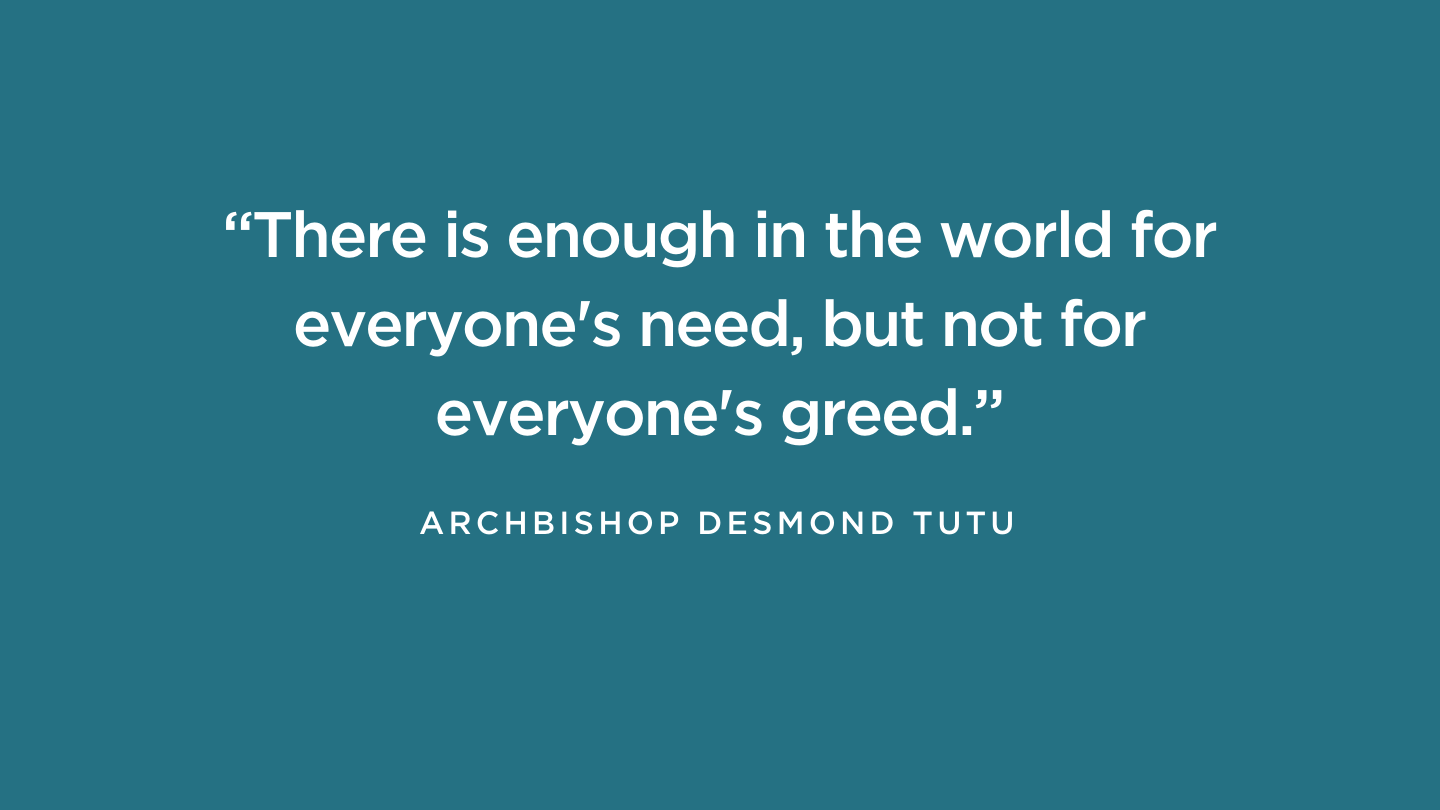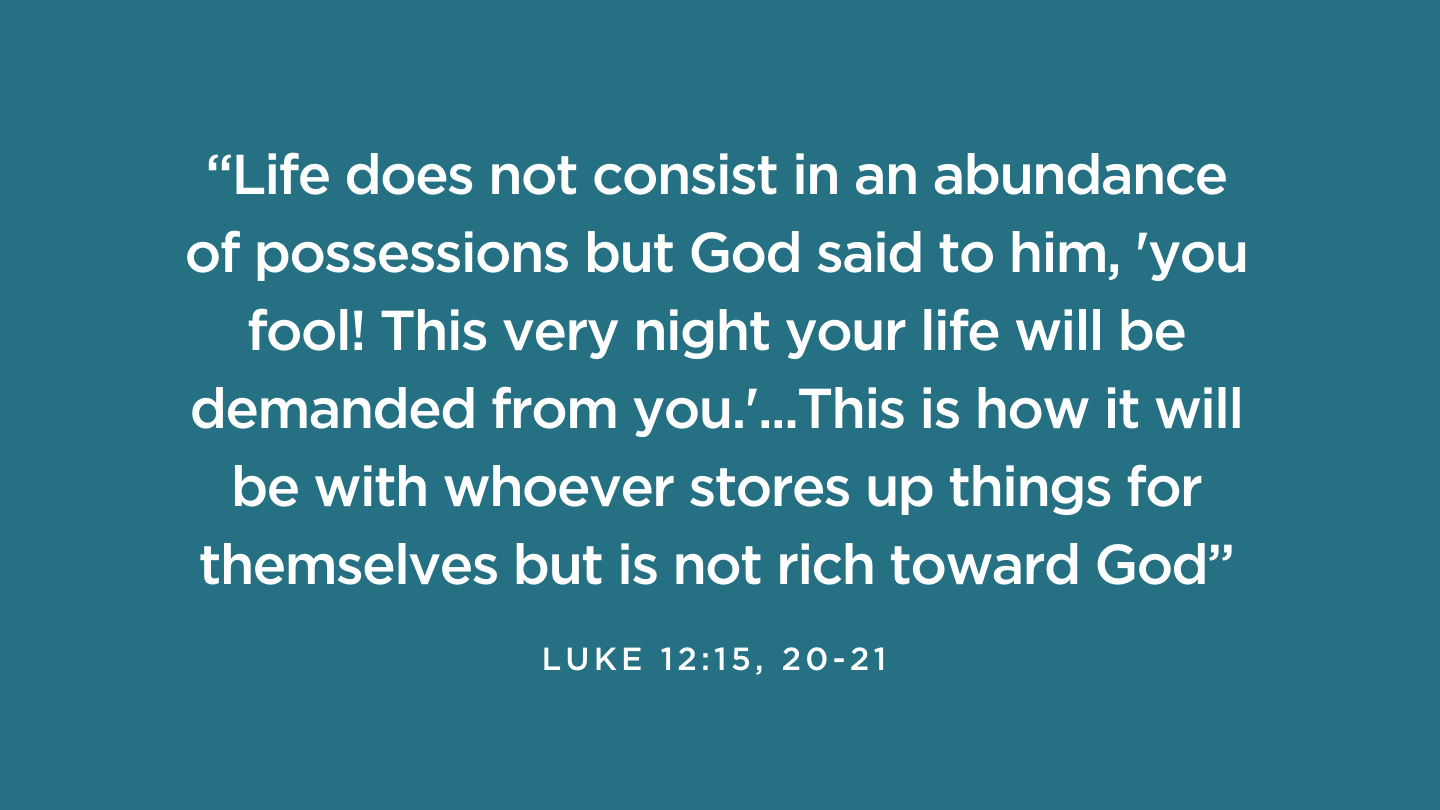Eyes to SeeSample



There was a time when God’s people, the Israelites, lived in the desert after escaping from slavery in Egypt. When they began to worry about where their food would come from, God did a curious thing: every day, He sent manna—a bread-like substance—that the people could collect and eat. There was enough for each person. However, God’s instructions were clear: they were only to take enough for each day and no more. Those who disobeyed soon found themselves with rotting bread. Trusting in God was such a difficult principle for the Israelites to learn. And it’s a hard principle for us as well. While God no longer sends literal manna, this principle of trusting God and not taking more than we need runs throughout the Old and New Testaments.
In Luke 12, Jesus tells the parable of the “rich fool.” This man had a good harvest, so he built bigger barns to store his extra grain. Then, he thought, he could take life easy with his provision secure for years to come.
But if you look at how North Americans live, we seem to believe the opposite of what Jesus taught. We love to spend and shop. According to research, the average American spends $1,497 monthly on non-essential items.
When Wess Stafford says, “The opposite of poverty is not wealth; the opposite of poverty is enough,” he reminds us that as Christians, our goal should be less about acquiring new things and more about living with enough. As you consider purchases, ask yourself these three questions:
1. Is this something I should purchase? Ask yourself, is this something I need? Is it something I can use for God’s purposes? Is it something I can use to build relationships?
2. Can I buy it second-hand? If your answer to the first question is yes, consider if you can purchase what you need second-hand, reducing the strain on the earth’s resources and money spent.
3. Can I find an ethical source? If your answer to the second question is no, then try to find an ethical source for your purchases. Visit websites like betterworldshopper.com to see ratings for companies and products regarding their impact on the environment and their treatment of workers. Buying locally when possible can help you better understand whether the product was ethically produced. Ethical clothing will cost more, so consider buying fewer items of higher quality.
Our purchasing choices can be powerful, and if we collectively demand ethical practices from the companies we buy from, it will make a difference. Examining our role as consumers challenges us to examine our beliefs about God’s provision for us and for everyone. But it is also an opportunity to live creatively and lovingly amid our everyday lives.


Reflect:
- Have you ever looked at your shopping habits as a way of doing justice for impoverished people?
- What is the equivalent of hoarding manna in your life? How might you live differently, knowing that God does provide for us?
Pray:
Lord, thank You for providing for me and meeting my needs. Please help me to live in a way that helps others have enough, too. Help me use creativity and wisdom as a consumer. Amen.
Scripture
About this Plan

Jesus had compassion, especially for those facing poverty, injustice, and inequality. What is our response? Do you see the world the way God does? If you want to go deeper and understand the spiritual root of poverty, join us for this 42-day video-assisted bible study from Compassion Canada. Ideal for group study or a challenging personal journey. Abridged and Updated.
More
We would like to thank Compassion Canada for providing this plan. For more information, please visit: http://cmpsn.ca/YV
Related Plans

Filled, Flourishing and Forward

All That Glitters: What the Bible Teaches Us About Avoiding Financial Traps

Live Well | God's Plan for Your Wellbeing

THE BRAIN THAT SEEKS GOD: Neuroscience and Faith in Search of the Infinite

Leviticus | Reading Plan + Study Questions

Small Yes, Big Miracles: What the Story of the World's Most Downloaded Bible App Teaches Us

Engaging in God’s Heart for the Nations: 30-Day Devotional

Our Father...

No More Mr. Nice Guy: Saying Goodbye to Doormat Christianity
